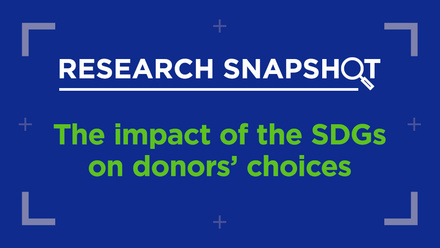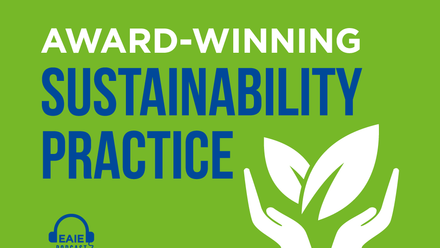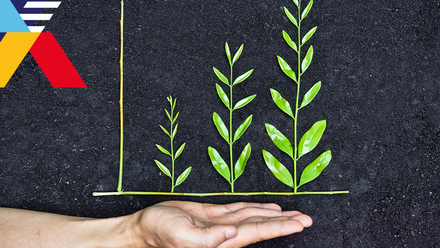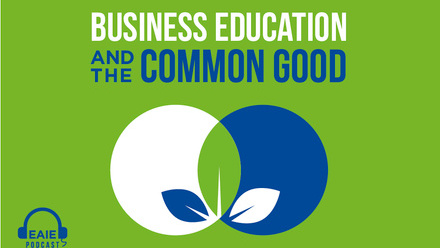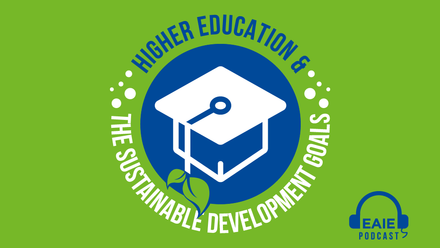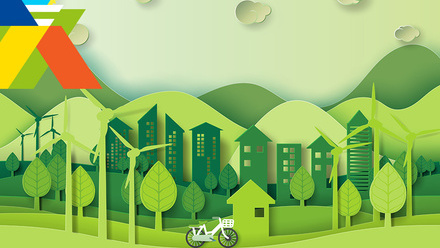Global communities driving the SDGs
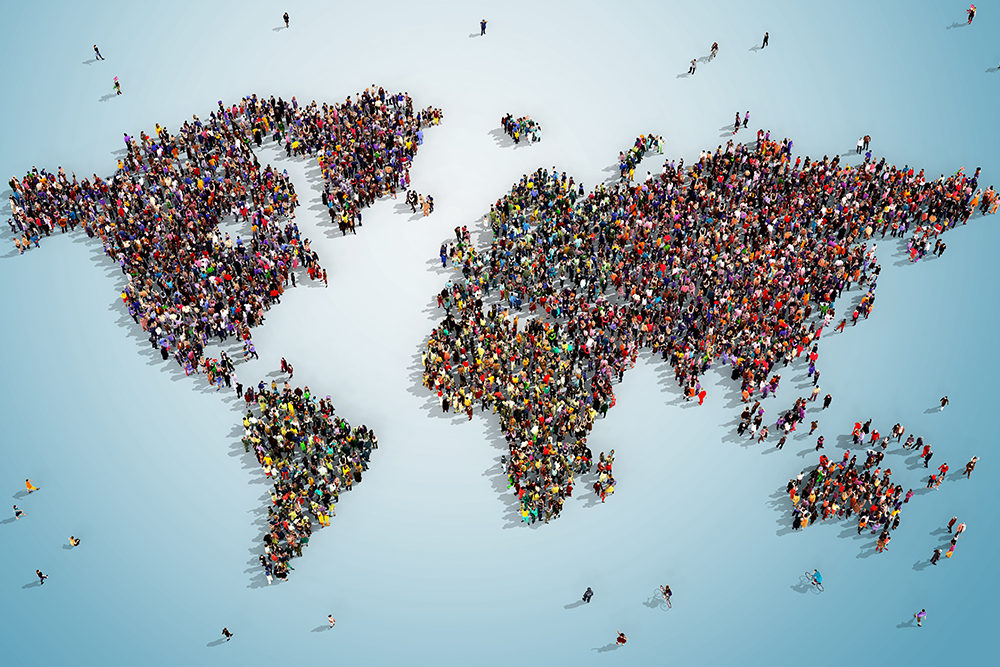
Internationalisation of higher education is a vital component in fostering global collaboration to address the complex challenges of our interconnected world. The Sustainable Development Goals (SDGs) offer a transformative framework to align mutual goals among higher education, governments, industry and civil society towards a sustainable and inclusive future. As such, growing international networks and educating global citizens committed to global collaboration and planetary sustainability beyond their student life can be internationalisation’s most significant contributions.
Measuring institutional performance on SDGs
The Times Higher Education (THE) Impact Ranking’s 5th edition highlights once again the growing number of higher education institutions committed to the SDGs. In 2019, THE began assessing institutions based on their success in advancing the 17 SDGs. Since then, the number of participating universities has doubled, from 766 institutions representing 85 countries in 2020, to 1591 institutions from 112 countries in 2023. Another monitoring instrument is the SDG Accord’s annual survey. Launched in 2017, the SDG Accord supports higher education’s commitment to the SDGs. Its 2022 survey report shows that only 27% of its participating universities have a strategic approach to embedding the SDGs across the institution.
There is still a long way to go before all higher education institutions have strategically embedded the SDGs
As another United Nations initiative, the Principles for Responsible Management Education (PRME) aims at ensuring that business schools educate future leaders with the skills required to balance economic and sustainability goals. Business schools can submit PRME’s Sharing Information on Progress (SIP) reports biannually. In 2022, a study analysed more than a thousand SIP reports submitted from 2015 to 2020 to understand how business schools had integrated the SDGs, finding that less than 16% of the business schools showed any real engagement with the SDGs. Clearly, there is still a long way to go before all higher education institutions have strategically embedded the SDGs.
Embedding SDGs in the institutional strategy
The University of Manchester (UoM) in the UK offers an inspirational example on how universities can incorporate the SDGs strategically across the institution. Ranked #1 in Europe and #2 in the world in the 2023 THE Impact Rankings, UoM contributes to the SDGs in four ways: research, learning and students, public engagement activity, and operations. Its 2022 SDGs Report presents examples of how each pillar contributes to a specific SDG. For example, to support SDG 2 (No Hunger), the Manchester Central Foodbank, a student-led and campus-based foodbank, provided more than 6000 meals to the homeless last year.
To complement student learning on this SDG, its BA Geography programme offers a unit on ‘food and farming’ covering hunger, ethical consumerism, environmental sustainability, animal rights and social equity. UoM also engages its alumni worldwide in the SDGs by inspiring them to participate in the Manchester Day of Action, a volunteer activism programme. Alumni can contribute to the university’s social responsibility agenda by supporting a local cause aligned with the SDGs. Alumni feel proud to belong to a global community who share common values that lead to making an impact beyond their national borders.
Nurturing global competence with the SDGs
The SDGs offer a comprehensive framework that can integrate planetary sustainability into any programme, encouraging interdisciplinary and intercultural learning, critical thinking, social responsibility, understanding the global challenges and the interconnectedness of social, economic and environmental issues.
In South Africa, the University of Cape Town’s SEAmester is a unique international shipboard programme that contributes to SDG14 (Life Below Water). It integrates interdisciplinary coursework, intercultural learning, hands-on experiences and interaction with leading marine researchers. Students collect data and learn about the ocean’s physical, biogeochemical and ecological response to climate change. Since its inception in 2016, the programme has welcomed over 170 students from all social backgrounds and from over 20 institutions.
By engaging students in programmes that translate the SDGs into action, they can become change agents
As another example, the Rotterdam School of Management at Erasmus University in the Netherlands has been training SDG Student Ambassadors since 2018. Seventeen (international) students are selected annually from Bachelor’s and Master’s programmes. Students choose an SDG to develop their project that can have local impact. This gives international students an opportunity to engage with the local Dutch communities. Throughout the academic year, students are supported and participate in different activities, which helps create a sense of community among SDG Ambassadors. This year they shared their learning experience in the programme with other students from KU Leuven (Belgium) and the University of North Carolina (USA) during in-person visits. A former SDG Ambassador also arranged a visit to Unilever so that a current Ambassador could learn about how the company implements its corporate social responsibility. Eva Rood, Director of the Positive Change Initiative at RSM, states that the recurrent feedback students give at the end of the programme is that "they feel proud of being SDG Ambassadors for RSM and happy to belong to a community that shares the need for the SDGs."
By engaging students in programmes that translate the SDGs into action, they can become change agents, and later as alumni, they can continue contributing to planetary sustainability locally and globally.
Strengthening international networks for the SDGs
While providing a common language and agenda for global engagement, the SDGs require international collaboration among universities, governments, industry and civil society. Universities can lead in creating and establishing international networks that have impact beyond their national borders. In Colombia, the Management School of the University of the Andes helped create the SDG Center for Latin America and the Caribbean (LAC). In collaboration with other universities in Brazil, Chile, Costa Rica, Mexico and Peru, the Center focuses on applied research and education on the SDGs and its relevant topics for the region. There are also SDG Centers for Africa and Southeast Asia with similar aims.
The Association of Pacific Rim Universities (APRU) brings together researchers, educators, thought leaders and policymakers from its member universities to exchange ideas, share research and collaborate on solutions for global challenges. One of its many education programmes is the APRU SDG Education for Global Citizenship. Offered virtually, it is an intercultural and global literacy programme where international students learn about the SDGs, explore some of the global challenges and propose solutions in a collaborative environment.
Global alumni communities for social change
Many research studies indicate that international alumni networks often support social change and address systemic inequalities by influencing national policy, mentoring graduates from underrepresented backgrounds, fundraising for scholarships for marginalised students, fostering innovation, contributing to local development and empowering social mobility. International alumni networks can thus be key enablers in creating the social change required to advance the SDGs.
As international educators, we should nurture existing partnerships and grow new ones to help our institutions create new knowledge, offer our students opportunities to acquire global competence, and engage our resourceful alumni to join global communities that can innovate solutions for a more inclusive and sustainable planet. Want to learn more about leveraging global communities in pursuit of the SDGs? Join me in session 06.02 on ‘Aligning internationalisation and sustainability strategies’ at the 2023 EAIE Conference, where we’ll dive deeper into how institutions can integrate SDGs in their efforts to internationalise.

